Harvesting cooperation
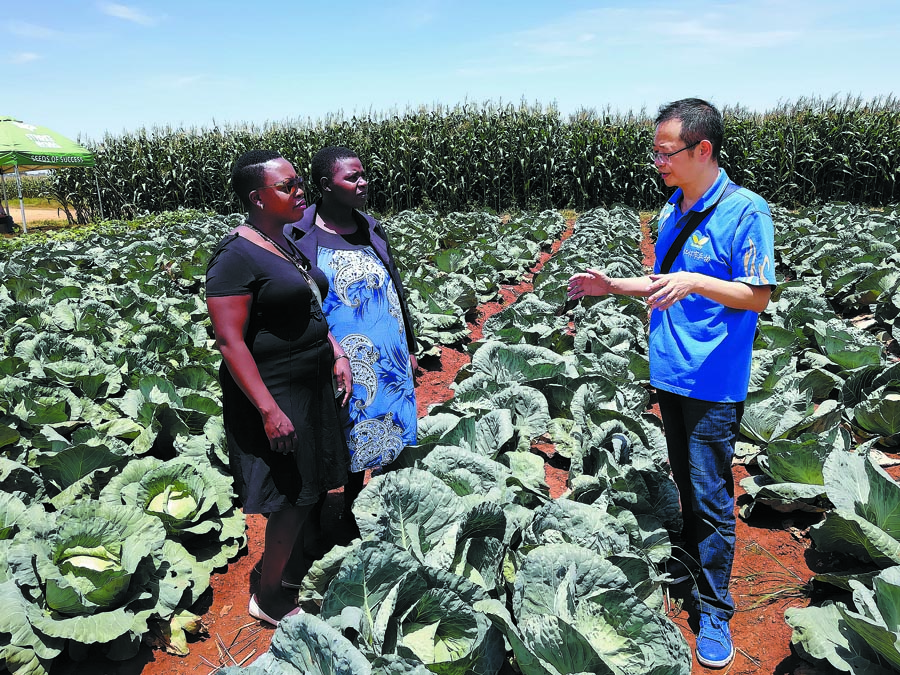 Chinese agronomist Luo Dengfeng communicates with Zimbabwean government officials during investigation and research. [Photo provided to China Daily]
Chinese agronomist Luo Dengfeng communicates with Zimbabwean government officials during investigation and research. [Photo provided to China Daily]
Agriculture specialist helps cultivate seeds of growth in Africa, reports Xu Lin and Yang Jun in Guiyang.
Agronomist Luo Dengfeng, 60, has responded to the country's call twice to join an agricultural aid program to Africa.
A decade ago, he participated in an eight-month project and became a horticulture teacher at a college in Ethiopia. His three-year work stint in Zimbabwe ended in September 2021.
"I've done much fulfilling work in Africa and learned a lot there," says Luo.
"I never regret my choices because I've done my best to offer the locals practical assistance. My life was very satisfying."
Luo is a senior agronomist of the bureau of agriculture and rural affairs of Renhuai, Guizhou province, and deputy head of the China Democratic League's branch in the city.
"Such aid programs to Africa need agricultural talent that can bear hardships and stand hard work, and are familiar with the grass roots. And I'm qualified for the work," he says.
"It's also an opportunity to broaden my horizons and explore the world, which was my dream when I was young."
The Ministry of Agriculture and Rural Affairs started China's agricultural aid program to Zimbabwe in 2009. In November 2018, the ministry sent 10 Chinese experts there, including Luo, a horticulture expert and deputy head of the team.
In July 2021, Luo and other Chinese experts received an award from the Zimbabwean government for their outstanding contribution to the aid program.
Their demonstration program for poverty reduction under the China-Zimbabwe agricultural cooperation framework recently won an award at the Global Solicitation on Best Poverty Reduction Practices.
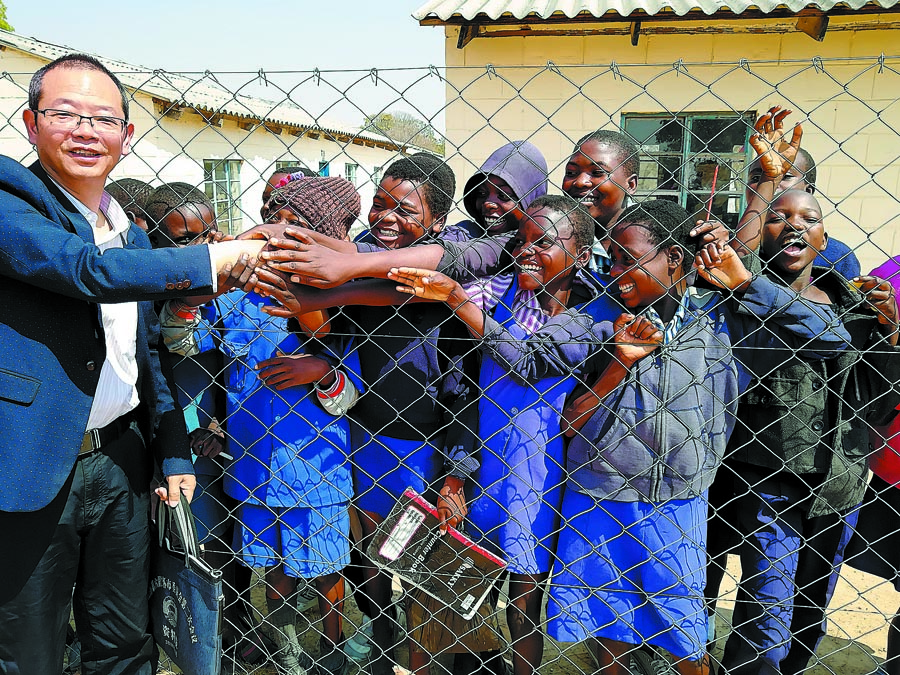 Luo Dengfeng is warmly received by primary school students in the poverty-reduction demonstration village in Zimbabwe. [Photo provided to China Daily]
Luo Dengfeng is warmly received by primary school students in the poverty-reduction demonstration village in Zimbabwe. [Photo provided to China Daily]
Based on China's targeted poverty reduction and eradication experience, the team established a poverty-reduction demonstration village in Zimbabwe.
"It's creative to apply China's poverty alleviation method in Zimbabwe. Our team shouldered the great responsibility of carrying out different agricultural projects in the village," Luo recalls.
He says the Zimbabwean media reported on the village's field of organic vegetables.
They also guided local farmers to raise chickens and rabbits and grow corn, and built a fresh water supply system and poultry hatching center.
The farmers can become shareholders in the village's cooperative and receive practical agricultural training from the Chinese experts. The average annual income of the village's 106 households nearly doubled to $1,150.
"It's very exciting news, both for the locals and us. It's a trial to establish such a village and we finally made it," Luo says.
The Zimbabwean government hopes to promote the demonstration village and its methods across the country, so as to boost its agriculture sector and increase the income of farmers.
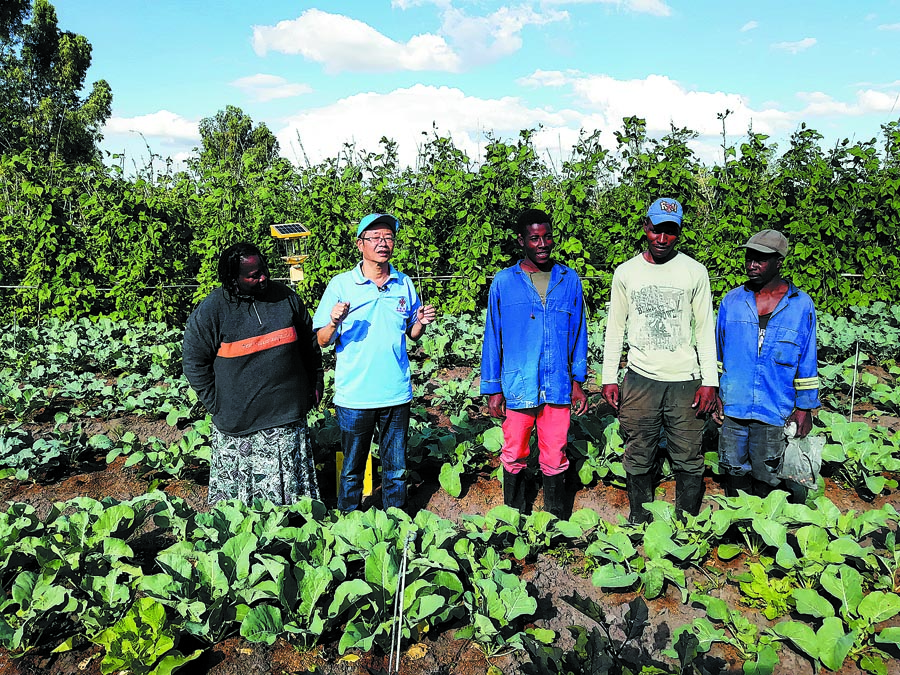 Luo during an interview by a Zimbabwean state media reporter (left) in the demonstration village's organic vegetable field. [Photo provided to China Daily]
Luo during an interview by a Zimbabwean state media reporter (left) in the demonstration village's organic vegetable field. [Photo provided to China Daily]
Sharing knowledge
At first, Luo and other Chinese experts visited different places across Zimbabwe to learn about the country's agriculture via investigation and research, so as to make suitable experimental demonstrations and provide the locals with appropriate training.
"Give a man a fish, and he'll eat for the day. Teach a man to fish, and he'll eat for a lifetime. That's what we did in Zimbabwe," Luo says.
The Chinese team offers training in accordance with the demand of the locals. The trainees include those who work in agricultural institutions or corporations, teachers and students from agriculture colleges and farmers. Luo used the photos that he took in Zimbabwe in his training program to enhance the lessons.
He chose suitable farm crops and planting and management methods, according to the local weather and soil types. He introduced organic farming and three-dimensional agriculture to the locals, and taught them basic techniques, for example, using biological control of pests and diseases.
Luo has written over a dozen reports based on his investigations and put forward possible solutions to the problems, saying that he hopes local government officials can take inspiration from them when making decisions.
Negotiations for the current citrus fruits export protocol between Zimbabwe and China started in 2015, and it was finally signed in January.
The two countries signed a citrus phytosanitary protocol that allows the southern African country to export fresh citrus fruits including sweet orange, mandarins and lemons to the Asian giant. China also agreed to provide technical assistance to Zimbabwe regarding fresh citrus exports to the Chinese market.
During Luo's stay in Zimbabwe, he visited citrus farms and shared his research findings at a number of symposiums. He also wrote a report about it, tackling the problems such as pest risk management in exported citrus.
"With the signing of the protocol, China's citrus industry standard may be applied in Zimbabwe, and it can help the African country to improve its citrus industry as well," Luo says.
"Zimbabwe's soil, sunshine and weather are suitable for citrus planting. The flavors of some Zimbabwean citrus species are unique, which is appealing for Chinese customers," he adds.
According to Luo, the harvest season for oranges in both countries has a time difference of about half a year, which is complementary for the consumer market in China.
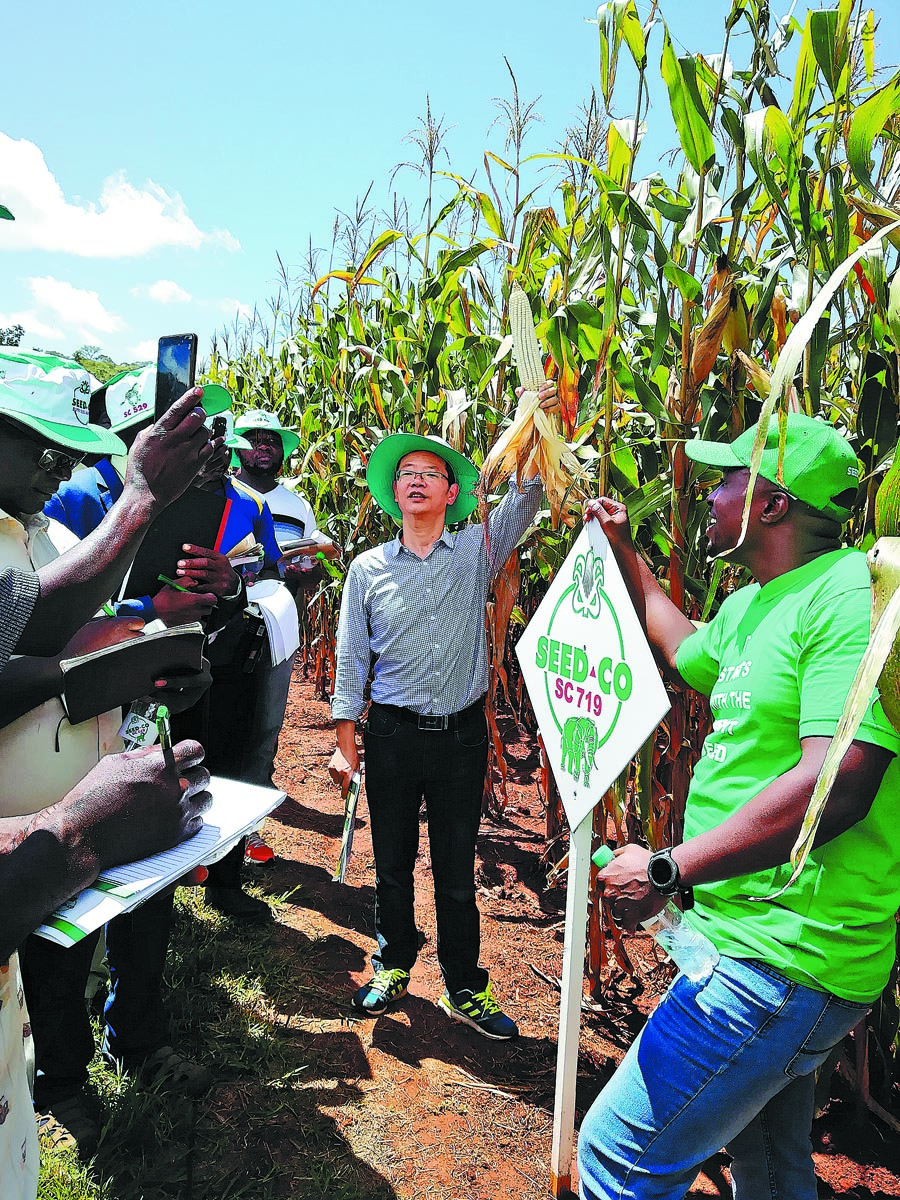 Luo shares China's experiences in farm management. [Photo provided to China Daily]
Luo shares China's experiences in farm management. [Photo provided to China Daily]
Tackling difficulties
"Mutual respect is paramount. I've made many friends there. Many locals also learn about China via me and other Chinese experts," Luo says.
He taught the locals how to make tofu and jellied bean curd, and how to cook some vegetables, in a traditional way.
It's a bittersweet life experience for him. He had to face homesickness, difficult work and living conditions and other concerns. His back was peeling due to sunburn and foot was scratched by wild plants.
"Many unexpected things may happen, and you have to wrack your brain to deal with that. If you just do things according to routine, you can never solve the problems," he says.
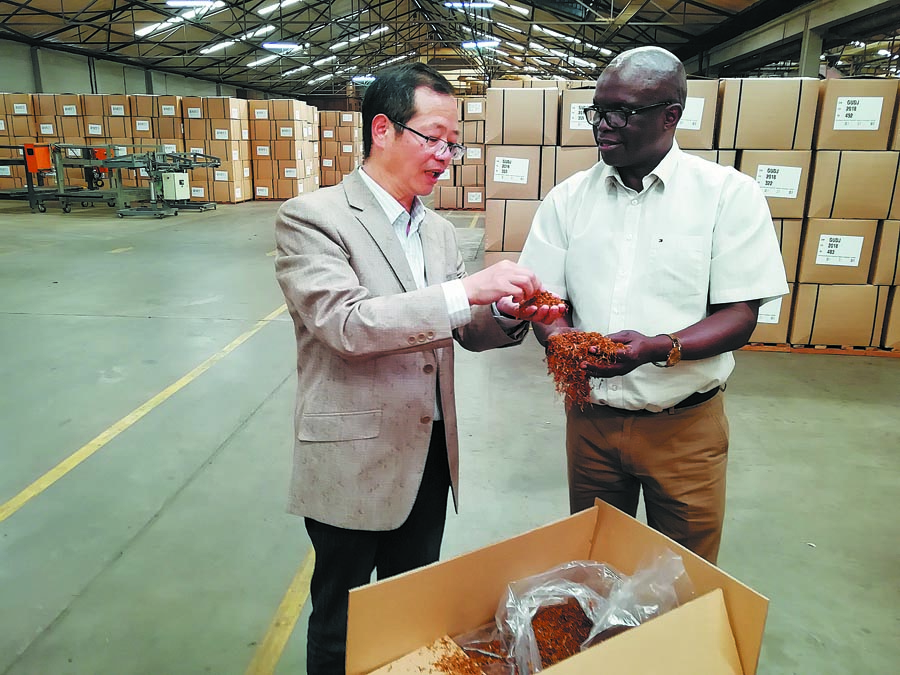 He carries out an investigation in a Zimbabwean tobacco re-drying company. [Photo provided to China Daily]
He carries out an investigation in a Zimbabwean tobacco re-drying company. [Photo provided to China Daily]
Luo's research field is fruit trees, but in Zimbabwe, he had to learn about vegetables and corn on his own, when he was appointed to be in charge of the corn project. He's proud that he's done the work well and that the farmers were also satisfied.
Zhao Yandi contributed to the story.
All rights Reserved. 京ICP备13028878号-8







